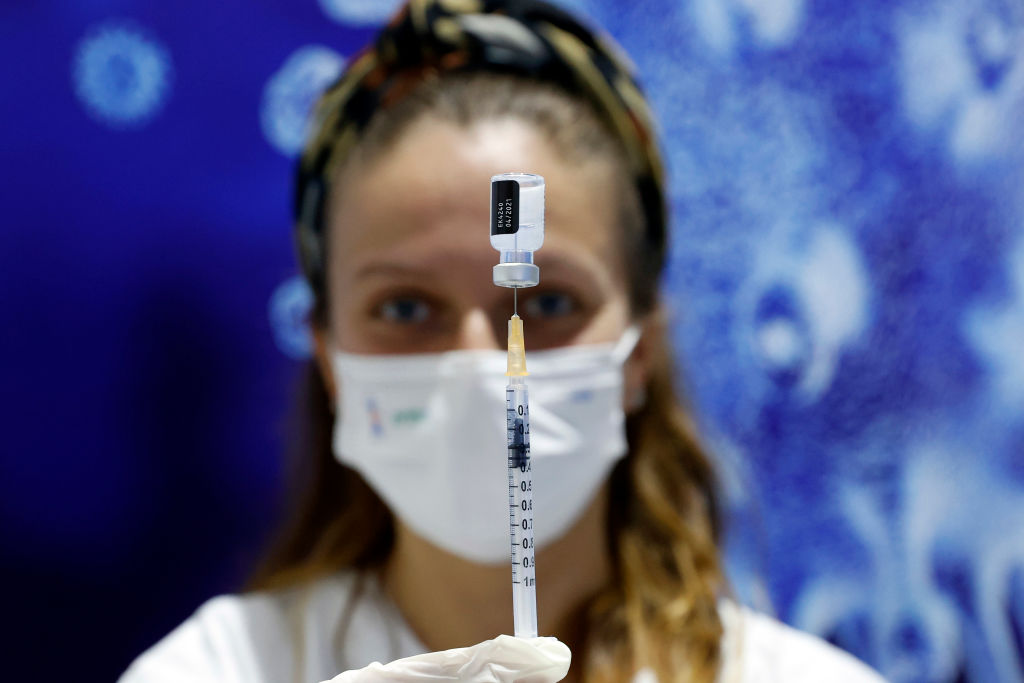The world’s eyes are on Israel at the moment, as the country continues its phenomenally fast roll-out of the Pfizer vaccine. As of yesterday, the country had vaccinated a third of its population with at least one dose, which means we are starting to find out vital information about the vaccine’s effectiveness and how it works in the real world.
So what have he learned about the vaccine so far?
First some statistics: as of yesterday, 78 per cent of people over the age of 60 in Israel will have received at least one dose of the Pfizer vaccine. 58 per cent of the over-60s are over 14 days from their first dose, meaning they should have some immunity from the disease and 30 per cent of the over-60s have already received their second dose. In other words, a large proportion of the elderly in Israel should have some immunity from the disease.
When considering vaccine effectiveness though we need to distinguish between two related aspects.
The first is the effectiveness of the vaccine on individuals. We still need to see if the vaccine trial results – which showed strong protection from symptomatic disease – hold when vaccines are given out in the real world, as opposed to the closely-monitored setting of a clinical trial. In practice, some people will not receive the correct dosage amount, the refrigeration of doses might be imperfect, and mistakes can be made by those administering the shot. This all may impact the effectiveness of the vaccine programme
The second aspect is the effectiveness of vaccines as a tool to control the spread of the virus on a national level, and especially in terms of preventing healthcare systems from being overrun.
When it comes to individuals, the two biggest healthcare providers in Israel have reported positive results, suggesting that there is a 33 to 66 per cent reduction in infections 14 days after someone receives their first dose of the vaccine. These results are obtained by matching vaccinated and unvaccinated people who are of a similar age and health profile, and comparing how the disease has spread. It is worth stressing that these results are very preliminary, although we are sure to receive more data soon.
In addition, there has been a small serological study of 100 people in Israel, which found that the vaccine led to a strong antibody response to the virus, especially after the second dose.
On the national level, so far we have seen no clear sign of the vaccine effect in terms of reduced case numbers or hospitalisations. While case numbers and hospitalisations are plateauing in Israel, this could easily be down to the lockdown which started two weeks ago.
Many people (myself included) have been looking at the data in many different ways, and trying to analyse the spread of the disease across different age groups, geographies and sectors, to try and understand why this is. Frankly, in my view there is no clear signal yet that the spread of the virus or the rate of hospitalisations has been impacted.
There are several possible reasons why we are not yet seeing clear signs that the spread of the virus has been slowed by the vaccine, such as:
1) Vaccine effects take time, perhaps longer than some of us hoped. This may be especially so for older people.
2) There’s been a clear trend in Israel where areas with higher infection rates have had lower vaccination rates, despite the widespread availability of the vaccine. There’s an effort to make vaccines even more easily available in these areas and convince hesitant people to be vaccinated nonetheless.
3) The vaccines might not be as effective as we hoped, perhaps due to the new coronavirus variants.
In my opinion, there’s no need for alarm just yet. We’re still too close to the start of the vaccination drive to see strong effects on a national level, especially as Israel is currently in the middle of a lockdown which might be masking some of the effects, and because of the differential vaccine uptake. In the next week or two we will hopefully though see signs of the vaccine’s effect on a national level.






Comments